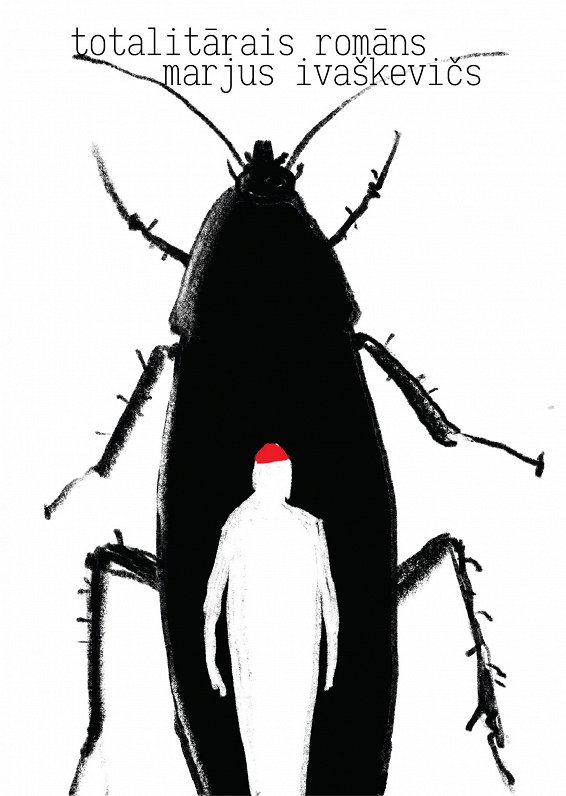At the entrance to “Hanza Peron”, interested parties are asked if there are any extra tickets. The only Russian-language stage reading of the play “Totalitarian novel” by the most famous Lithuanian playwright Marius Ivaškevičs in Latvia gathered stars of Russian, Lithuanian and Latvian actors, among them were Chulpana Hamatova, Aleksandrs Feklistovs, Darjus Meškausks, Egons Dombrovskis. The play tells about the cruelty and absurdity of the post-Soviet dictatorial regimes, about the hope for the future and the impossibility of change.
Reading of the play “Totalitarian novel”.
Photo: Publicity image
“We live in a time when all this is happening in our neighboring countries, we are very close to it. If 15 or 20 years ago we thought it was distant history, now it is the present. Riga is still further from the Russian border, but Vilnius is 30 kilometers from the border of Belarus, which is next door.We are talking about the 1930s of the Soviet Union, about Stalinism, or about the present day in Tajikistan.
Most people think what is happening with Russia right now – it is about this whole unhappy territory, from which we, thank God, were lucky to escape, we must hope for forever,” says playwright Marius Ivaškevičs.
The central line of the play tells about how the totalitarian power in Tajikistan will settle with the unacceptable performance “Mankurts” in 2022, which is based on Chingiz Aitmatov’s novel “And a day longer than life lasts”. One of the actors is arrested, others are interrogated, the director is forced to leave his homeland, the play uses the playwright’s interview with him.
Director and theater producer Yevgenia Shermeneva moved from Russia to Latvia in 2016, unable to come to terms with the regime there, so it was important for her to gather outstanding Russian actors who had been forced to leave Russia: “It was a very important project – for me, for love, about the heart, about the artist, about society and about our days.”
“This play has a text about how we don’t know what happens to the people we grew up with. There are a lot of facts about the countries of Central Asia, and we really don’t know anything about it. Thanks to Marius, who told about the people in the play , who suffer there, are arrested, tracked, or make art, or just live, but we don’t really know about it. I really love a theater where you can talk about today, what it resonates with, when it’s not an imitation, but it hits everyone’s heart . This play is complex, there are a lot of actors who are connected together, a lot of historical facts, personal experiences. I am grateful to the playwright who confesses his personal experience when a child wanted to get privileges, how it settled in us during the Soviet era and how we ourselves you have to talk to yourself about it.This play has a text when the characters of the play, talking about mankurta [cilvēku, kas zaudējis vēsturisko atmiņu – red.], try to look into their own eyes and look into the other. For me, this project is about looking into myself and giving this opportunity to other people,” said Shermeneva.
Several parallel historical and contemporary storylines are intertwined in the play – Chingiz Aitmatov’s words about Mankurtism, the loss of historical memory and people made slaves of the system, Mikhail Bulgakov’s novel “The Master and Margarita” and the fate of writing a play glorifying Stalin at the end of his life, which kills himself . Bloody events in Central Asia and censorship, as well as the author’s own personal experience.
The playwright reveals: “In the play, all are historical facts, except for the theatrical actions, which allow the viewer to relax a little from the information.”
When asked if this is his attempt to understand Russia and if it is possible to somehow break its system, Ivaškevich answers: “There is nothing to understand. Evil is dull.
It’s a reminder because it’s repetitive. After a hundred years, the same things, methods, breaking people are repeated. The most important thing is that the goal of the show is not only to break a person physically, but to try to tear out his soul and force him to work for his own good.
This is Mankurtism – a slave with absolute love for his master. This show was born after the events in Tajikistan that were unfolding before our eyes, when the show was banned, the actors were arrested and they tried to break others, the director was forced to leave Tajikistan. We decided [darīt to]which we can do in a free country, or can we take these events in a different form and repeat them here, where we can show it and talk about it.”
“It turned out that we started working with the playwright in January and set this date, but two weeks ago a tragedy happened in Russia with the death of Navalny. When I started rereading this play, I realized that it is getting easier for me, because I am doing what I can, and I have there’s no shame in that,” notes Shermeneva.
“Totalitarian novel” forces one to be alert, to remember the fates of artists broken during the Soviet era, and to understand that nothing is over. The future is affected by everyone’s personal choices and humanity.
2024-02-29 17:43:04
#thought #turned #present #parallels #history #present #reading #Totalitarian


